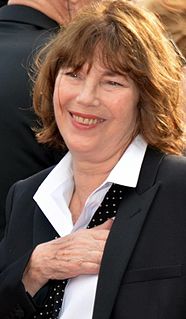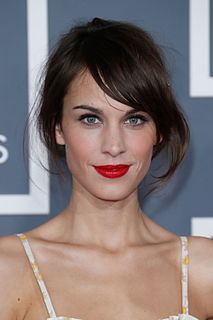A Quote by Lady Colin Campbell
My mother became a big problem... She was a complete narcissist. When I broke free her narcissisticness came out and it was tough to get out.
Related Quotes
At a certain point the family moved to Jaipur, where no woman could avoid the doli or purdah. They kept her in the house from morning to night, either cooking or doing nothing. [My mother] hated doing nothing, she hated to cook. So she became pale and ill, and far from being concerned about her health, my grandfather said, 'Who's going to marry her now?' So my grandmother waited for my grandfather to go out, and then she dressed my mother as a man and let her go out riding with her brothers.
When my father died, my mother came back from being Mrs. Birkin to being Judy Campbell. She was a stunning actress. She came out of her shell. She was herself again: this very independent, funny, intellectual lady - and was able to perform again, which was her life before meeting my father squashed it out.
The problem with my mother is that she didn't go to the doctor. And I think by the time she started to show symptoms that something might not be right, and finally went to the doctor, she was so close to her death that she couldn't get the care she had needed. Her big issue was not going to the doctor.
The cycle hit the beach and spun out. Emma went into a rolling crouch as she flew free of it, keeping her elbows in, pushing the air hard out of her lungs. She turned her head as she hit the sand, slapping her palms down to roll herself forward, absorbing the impact of the fall through her arms and shoulders, her knees folding up into her chest. The stars wheeled crazily overhead as she spun, sucking in her breath as her body slowed its rolling. She came to a stop on her back, her hair and clothes full of sand and her ears full of the sound of the wildly crashing ocean.
'Tough' meant it was an uncompromising image, something that came from your gut, out of instinct, raw, of the moment, something that couldn't be described in any other way. So it was tough. Tough to like, tough to see, tough to make, tough to understand. The tougher they were the more beautiful they became.
My mother hid the struggle from us children. She complained about her salary, and she had a tough time. Although she became a headmistress, she still had to do a lot of sewing. The more I think about her, the more remarkable I realise she was. And she understood straight away when I said that I wanted to write.
Sometimes we adopt certain beliefs when we're children and use them automatically when we become adults, without ever checking them out against reality. This brings to mind the story of the woman who always cut off the end of the turkey when she put it in the oven. Her daughter asked her why, and her mother responded, "I don't know. My mother always did it." Then she went and asked her mother, who said, "I don't know. My mother always did it." The she went and asked her grandmother, who said, "The oven wasn't big enough."
So she became impulsive, scared by her inaction into perpetual action. When the Eagle confronted her with the expulsion, maybe she blurted out Marya's name because it was the first that came to mind, because in that moment she didn't want to get expelled and she couldn't think past that moment. She was scared, sure. But more importantly, maybe she'd been scared of being paralyzed by fear again. ~Miles/Pudge on Alaska, pg 120-121
... until Miri could not help it any longer and she laughed out loud. The sound broke the game. Peder looked at her. He reached out, and she thought he meant to grab her straw or perhaps yank her hair as he used to when they were little. But her put his hand behind her head and, leaning forward, pulled her face to his. He kissed her. One long, slow kiss.
Well, when Eleanor Roosevelt's mother dies, she goes to live with her Grandmother Hall. And her Grandmother Hall is in mourning. She's in widow's weeds. She's in her 50s, but appears very old. And she's exhausted from raising rather out-of-control children. Her favorite daughter, Anna, has died (Eleanor's mother), and she has living at home two other sons, Vallie and Eddie. And they are incredible sportsmen, incredible drinkers, out-of-control alcoholics.
I actually love...Well I love both of them [Paris Hilton or Britney Spears] but I really love Paris Hilton. I interviewed her once, she had a record coming out. She was DJing and promoting that. It was actually only a couple of years ago. She had her persona in tact when I was interviewing her and then after we broke she came for a cigarette with me and I just found it so... she's so intelligent and interesting and obviously is playing the game.





































